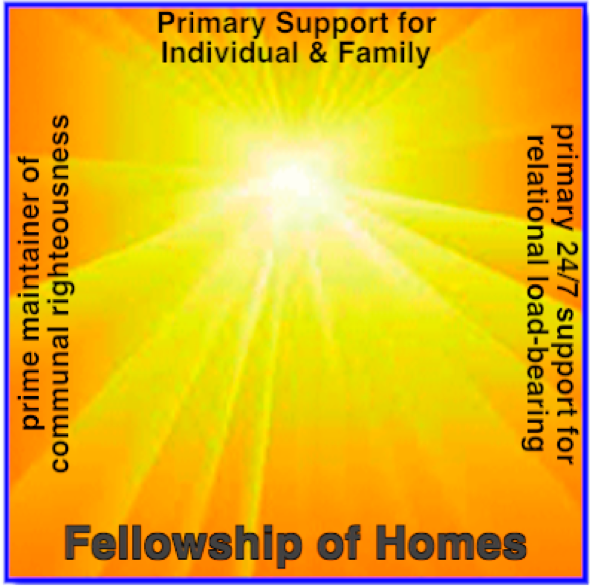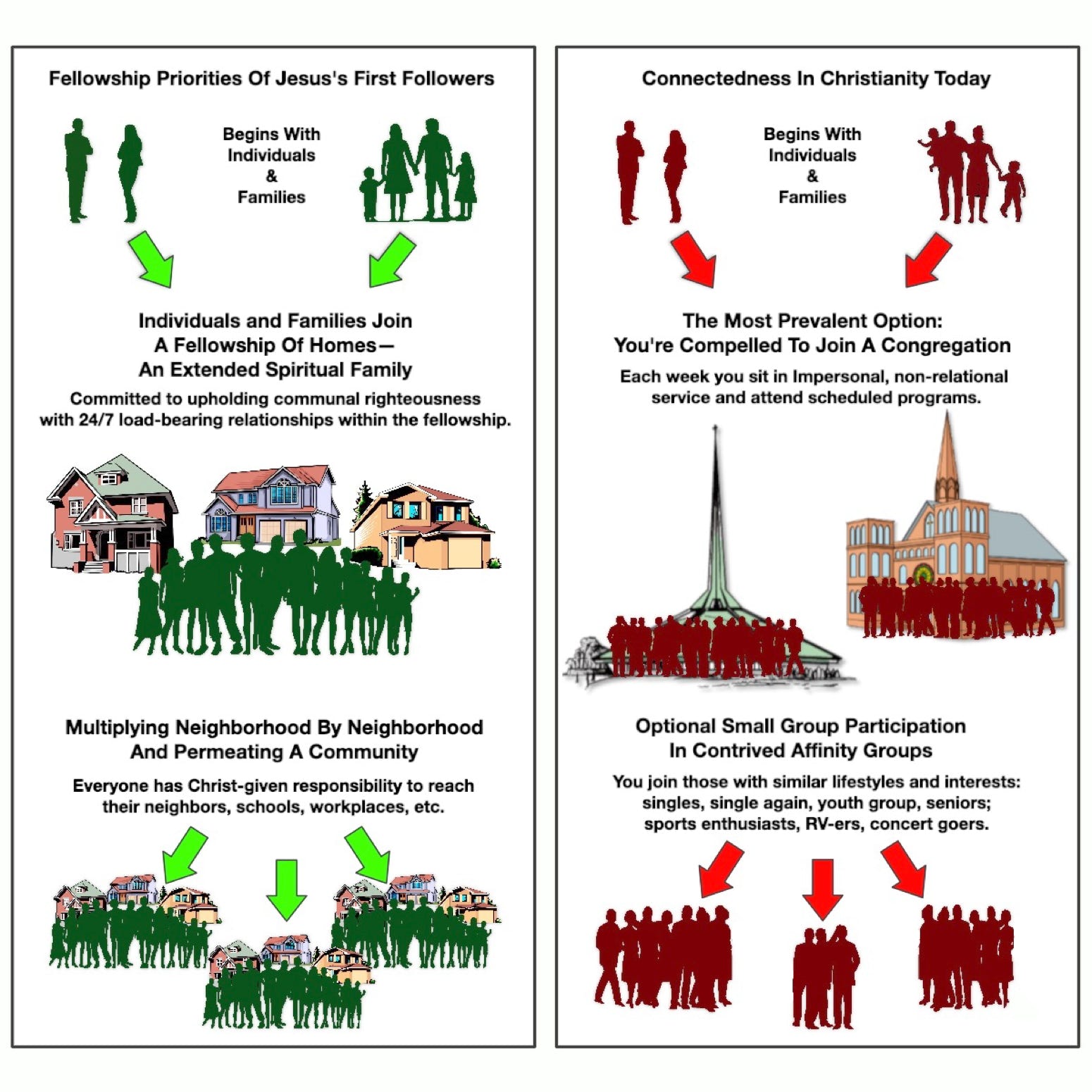Priority #1
Our Father and Jesus
A Love-based Relationship of Covenant Union
A biblically Hebraic understanding of your relationship with your heavenly Father and His Son, Jesus, is a lifelong pilgrimage to your salvation as you walk in ever-growing yieldedness to the indwelling Holy Spirit. Your spiritual journey culminates when you stand before our Lord and your name is proclaimed to the hosts of heaven! That journey begins when you accept the stipulations our Father offers in the New Covenant, a new birth of reconciliation that is made possible through the shed blood of Jesus, our atoning Sacrifice.
Jesus makes clear how you can enter into this Covenant: “‘Whoever puts his trust in Me, as the Scripture says, rivers of living water will flow from his inmost being!’ (Now He said this about the Spirit, whom those who trusted in Him were to receive later — the Spirit had not yet been given, because [Jesus] had not yet been glorified)” (John 7:38,39). The only Scripture in existence when Jesus revealed this truth was the Older Testament, the Hebrew Scriptures. The foundational truth for salvation is found in the Older Testament and made clear in the Newer Testament as a continuum that is made full in Lord Jesus. [For more on this, please see our Hebraic Article, The Gospel of the Covenant is the Pilgrimage to Salvation, as well as our video training series, Jesus In Your Home.]
Priority #2
Your Home
The Marriage Covenant:
The Physical Representation of Your Covenant with The Father
The Home: The Basic Building Block for Spiritual Development
The earliest Hebraic followers of Jesus understood clearly that God ordained the home to be the basic building block for spiritual development. So much of Christendom today “outsources” wives and children for others to teach. In the earliest Church, however, the husband/father was the primary influence in the spiritual development of his family—and this was an intentional responsibility, not a haphazard occurrence. All other relationships supported him in this role, and nothing competed with his responsibility to help his own family mature spiritually.
A. Marriage — Our Father designed the marriage covenant to be the physical representation of our spiritual Covenant with Him in Christ. In this light, marriage is the second-most important covenant God established. It mirrors the intimacy and union He wants with His beloved, those who are united with Jesus through the indwelling Holy Spirit. A Hebraic-Christian marriage of the early Church reflected a couple’s relationship with God and could be summarized like this: "If you want to know the extent of my relationship with Jesus Christ, see it in the love He has given me for my spouse." A man is called to love God with all his heart, soul and mind (Matthew 22:37). No less is demanded of him in his union with his wife as he serves her through the indwelling Spirit: “Husbands, love your wives, just as Christ loved the church and gave Himself up for her” (Ephesians 5:25). A woman is also called to love God with all her heart, soul and mind. No less is demanded of her in her union with her husband as she serves him through the indwelling Spirit in loving respect as she would her Lord (Ephesians 5:22-24, 32). The relational intimacy shared by a married couple represents both their individual and collective relationship with their Lord.
Divorce among the churched has snowballed because the true Gospel which was embraced by the earliest followers of Jesus has been discarded by so many theologians. Please read this article about the interconnection between the New Covenant with our Father which our Lord made possible and the marriage covenant:
Our Heavenly Father’s Two Paramount Covenants – Interwoven And Made Possible By The True Gospel
B. Family — Your home is the primary building block for Christian growth and discipleship. All your other spiritual relationships should strengthen your home in this purpose. The Hebraic followers of the earliest Church recognized that their relationship with their Lord and the relationships within their homes were inseparably linked: “Love the Lord your God with all your heart and with all your soul and with all your strength. These commandments that I give you today are to be upon your hearts. Impress them on your children. Talk about them when you sit at home and when you walk along the road, when you lie down and when you get up” (Deuteronomy 6:5-7).
Children are a heritage and blessing from the Lord. Fathers in particular are commanded to “bring them up in the training and instruction of the Lord” (Ephesians 6:4). A father is God’s primary influence in whether his children enjoy healthy marriages that glorify our Father, or end up promiscuous in heterosexual or homosexual relationships. A mother imparts nurture and motivation to her children in a way that no outside caregiver can (Proverbs 1:8; 31:26). God’s life purpose for a child is best guided by parents who intimately know their children’s unique personalities and inclinations through intentional meaningful time together and loving, consistent effort. Parents are uniquely suited to shepherd their children into the life decisions and vocation that are best suited for each child, especially if the family is blessed with input from wise grandparents or older, extended spiritual family members.
Priority #3
Fellowship in Homes
An Alliance of the Repentant and Committed in Christ Who Are Prepared for Spiritual Warfare
Our Father is reestablishing a key element of the early Church: fellowship in homes as extended spiritual family for spiritual growth and discipleship, supportive relationships, and preparing followers of Jesus to extend His Kingdom by making disciples. The Kingdom of God is at war against demonic spiritual forces that will use any means to keep people from spending eternity with Him. The home fellowship family represents the front line of engaging in this battle by supporting each individual and family as they reach their neighbors and others in their workplaces and schools. Victories are achieved through prayer in the power of the Holy Spirit, and through the earnest willingness of those in the fellowship family to be our Lord's loving ambassadors as they reach out to disciple others.
In Matthew 18:15-20, Jesus addresses the “called-out ones” about their responsibility to uphold communal righteousness in their fellowship with each other. Out of love they must confront the unrepentant about their sin. If that person doesn’t repent, he (or she) must be excluded from fellowship until he turns from his sin and is restored by our Father. Those in the home fellowship family are not against the unrepentant person, rather they are for the communal righteousness that results in prayers being answered and our Father receiving testimonies of praise to His faithfulness.
A person who continues in disobedience yet stays within the fellowship could tempt others to stray and would allow his unrighteousness to defile their communal righteousness. Personal and communal righteousness is vital for fellowshipping with others; the smaller number of Jesus followers within a home fellowship increases accountability. Communal righteousness begins in each home, and authentic fellowship consists of others who purpose to do likewise.
The earliest followers of Jesus met in each others' homes with glad and sincere hearts to break bread and to “spur one another on toward love and good deeds” (Hebrews 10:24). They shared a seven-day-a-week family-style commitment to one another. Hebraic followers of Jesus shared fellowship in homes to support and uphold communal righteousness as they fulfilled their Father’s purposes and will. As spiritual extended families, their physical and spiritual lives were interconnected in love-impelled, load-bearing relationship. They knew from the Older Testament (see Psalms 14:5, Psalms 32, Proverbs 15:29, Malachi 3:18) and affirmed in the Newer Testament (1 Peter 3:12) that God refuses to hear the prayers of the unrepentant and unrighteous. But those who confess their sins and turn from them are restored in righteousness through God’s forgiveness (1 John 1:9). Then He readily answers their prayers (James 5:16-18)!
The illustrations below depict the differences between the relational connectedness of the earliest followers of Jesus and congregations which have small groups today:




